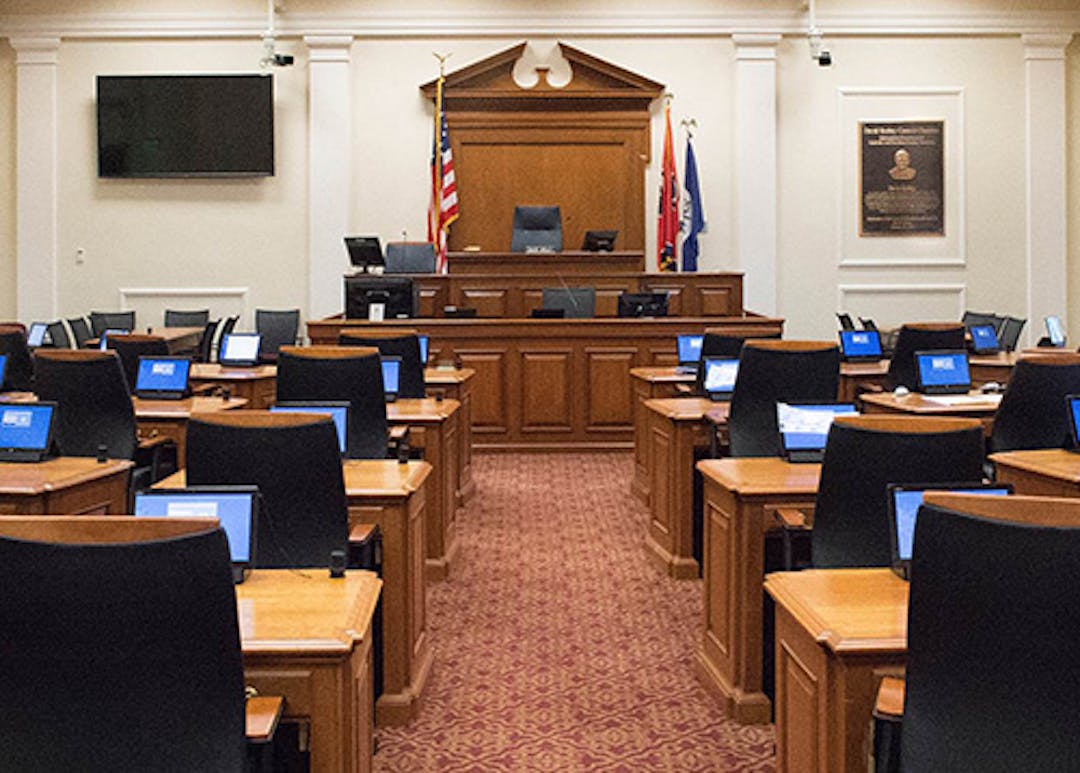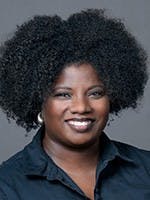General Forum, 2023-2027 Term

This is a forum for discussion by Councilmembers of topics relevant to the 2023-2027 Council term.
Only Councilmembers may participate in posting to this internet forum, pursuant to state law.
Please scroll down to view all discussion topics.
This is a forum for discussion by Councilmembers of topics relevant to the 2023-2027 Council term.
Only Councilmembers may participate in posting to this internet forum, pursuant to state law.
Please scroll down to view all discussion topics.
-
Response to MNPS Budget Reforms
12 days agoYou need to be signed in to add your comment.
Sign InThis discussion topic was requested by Council Member Zulfat Suara in response to a CouncilConnect post regarding reforms to the budget process and Metro Nashville Public Schools.
From CM Suara:
CM Webb. Thank you for raising these ideas. I fully support efforts that promote transparency and accountability in our public institutions. At the same time, it is important that our discussions are grounded in a clear understanding of what oversight mechanisms already exist, what authority the Council has under state law, and where there is room for improvement.
To provide clarity, I have organized my response into three sections:
- Oversight measures that already exist
- Actions the Council cannot take under current law
- Opportunities for additional oversight and engagement
1. Oversight Measures Already in Place
Annual Audits
MNPS already undergoes an annual independent audit as part of the Metro Government audit conducted by Crosslin, which is submitted to the State Comptroller. Metro Internal Audit has also conducted program audits of MNPS in the past. If there are specific areas of concern, any Councilmember may request a targeted audit through Metro Internal Audit.
Monthly and Quarterly Financial Reporting
MNPS provides monthly financial reports to the Council. These are distributed by Maria Caulder, and the most recent report was sent on January 7. Like Metro’s own financials, these reports often lag by a few months because they rely on state data.
Public Access to Budget Information
MNPS publishes its operating and capital budgets online at:
https://www.mnps.org/departments/budgets
2. Actions the Council Cannot Take
Attaching Conditions to Budget Approval
State law limits our ability to condition or reduce MNPS funding. Tennessee’s Maintenance of Effort (MOE) requirement (T.C.A. § 49‑3‑314) mandates that local governments fund schools at least at the prior year’s level. This prevents the Council from reducing or conditioning MNPS funding based on performance metrics or other criteria.
Because the state has reduced its share of funding over time, Metro has had to increase its contribution to maintain compliance. I discuss this in more detail on my blog, which includes analyses of MNPS budgets over the past five years: https://zulfatsuara.com/blog/
Mandating Council Votes on MNPS Expenditures:
The authority to approve MNPS expenditures rests with the MNPS Board, not the Council. We cannot require votes on spending above certain thresholds.
3. Opportunities for Additional Oversight
Reestablishing Regular Committee Engagement
Metro previously had an Education Committee, which I chaired. During that time, we held regular meetings with MNPS leadership to review expenditures and discuss budget variances. Although the committee is now part of Budget & Finance, it would be reasonable to schedule quarterly MNPS budget discussions—either with the full committee or a working subgroup.
A real-time spending dashboard is a reasonable idea. Metro Finance recently implemented one, and MNPS could consider adopting a similar tool.
Information Requests:
Councilmembers may request information from MNPS at any time, and MNPS has historically been responsive.
Community Engagement: Residents
Can attend MNPS Board meetings and communicate directly with their elected school board representatives.
Additional Context
MNPS student performance has improved in recent years, and I encourage reviewing their achievement data. Many of the challenges MNPS faces stem from state-level decisions, including the voucher program and the state’s funding formula. Currently, the state funds MNPS at a 25/75 ratio—Metro pays 75% while the state pays 25%. In contrast, the state funds some other districts at a 75/25 ratio.
Conclusion
While I appreciate the call for increased transparency, the creation of a new oversight committee is neither necessary nor permissible under current law. Much of what you propose already exists, and where improvements are possible, we can pursue them within the authority granted to the Council.
If deeper involvement in school governance is the goal, the most direct path is through service on the MNPS Board.
I am happy to provide additional information or discuss any of these points further. My blog includes several years of budget analysis that may be helpful for understanding both MNPS and Metro’s broader financial structure.
Go to discussionThank you for your contribution!
Help us reach out to more people in the community
Share this with family and friends
No thanks -
MNPS Budget Reforms
13 days agoYou need to be signed in to add your comment.
Sign InThis discussion topic was requested by Council Member Jennifer Webb regarding reforms to the budget process and Metro Nashville Public Schools.
From CM Webb:
I want to create oversight of the public school system. (I know there are state laws involved here.)
I want to establish a committee with council members, independent auditors, and community reps to review school expenditures.
Regular audit reports - require annual independent audits to the council before budget system (auditor chosen by committee).
Council can investigate any expenditure exceeding thresholds and request justification from MNPS.
Why can’t we do a charter amendment?
Ideas:
***I am advocating a state level for city councils more oversight on their budgets.
***I want a DETAILED by line financials submitted to council monthly.
***I think we need to attach conditions to budget approval
- Student performance metrics
- Facility standards
- Staff to student ratio
***Require council approval before capital funds are allocated
***Require dashboard for MNPS to track spending by department in real time
***Council should pass resolution requiring MNPS to submit quarterly expenditure reports
***Mandate a vote for expenditures over a certain amount.
Thank you for your contribution!
Help us reach out to more people in the community
Share this with family and friends
No thanks -
You need to be signed in to add your comment.
Sign InThis discussion topic was requested by Council Member Tasha Ellis regarding a proposed resolution relative to NES oversight and public notice .
From CM Ellis:
RESOLUTION SUMMARY
Sponsor: Council Member Tasha Ellis (District 29)
Summary: This resolution requests a Special Meeting of the Transportation and Infrastructure Committee within fourteen days to conduct an oversight hearing on NES's storm response. The resolution requests that NES President and CEO Teresa Broyles-Aplin, Chief Operations Officer Brent Baker, and the Chair of the Electric Power Board appear before the Committee to provide testimony regarding:
- Pre-storm staffing levels and emergency preparedness planning
- Mutual aid request timeline and decisions regarding contractor assistance
- Communication failures including the delayed outage tracking tool and inability to provide restoration timelines
- Restoration prioritization methodology, including treatment of Critical Care Referral Program customers
- The decision not to dedicate crews to single-customer outages and simple reconnects
The resolution further requests that NES commission and fund an independent third-party after-action review to be completed within ninety days, establishes quarterly reporting requirements to the Transportation and Infrastructure Committee, and requests an immediate written report on current outage status, Critical Care customers affected, and mutual aid crew disposition.
Emergency Basis: More than 51,000 NES customers remain without power seven days after the storm, with dangerous cold forecast for this weekend and no restoration timelines provided.
Thank you for your contribution!
Help us reach out to more people in the community
Share this with family and friends
No thanks -
You need to be signed in to add your comment.
Sign InThis discussion topic was requested by Council Member Quin Evans Segall regarding a special called meeting of the Transportation & Infrastructure Committee.
From CM Evans Segall:
Colleagues,As many of you know, the Transportation & Infrastructure Committee has invited The Boring Company to come before our body. They have agreed to do so on February 19 at 4:30 pm. I anticipate a short presentation and also a question section. I want to make sure all members are aware of this meeting.I understand we will have about 90 minutes. We will have short public comment and a short presentation. The remaining time will be allocated equally among all members (not just the committee) who would like to ask questions. The Boring Company has also agreed to take and pre-answer questions submitted to them and will be in touch with members regarding that process.Please let me know if you have any questions regarding this meeting and the process I intend to follow. My goal is for it to be fair to everyone within the bounds of our time agreement, and I welcome your suggestions as to how to achieve this.Thanks,QuinThank you for your contribution!
Help us reach out to more people in the community
Share this with family and friends
No thanks -
Reappointment of Campbell West to Metro Arts Commission
about 1 month agoYou need to be signed in to add your comment.
Sign InThis discussion topic was requested by Council Member Emily Benedict regarding the reappointment of Campbell West to the Metropolitan Arts Commission.
From CM Benedict:
Colleagues,The Mayor’s office has nominated Campbell West to be reappointed to the Arts Commission. Ms. West is a District 7 resident, and has been very involved in the community, especially Nashville’s art community.
Ms. West is the current Chair of the Commission, as confirmed unanimously by her fellow Commissioners. She is the longest serving member of the Arts Commission. She has institutional knowledge that the new members have found beneficial, all of whom have been on the Commission for less than two years. While we have, importantly, changed the structure and membership of this Commission, having someone on the Commission who helped create the needed change has been to artists’ benefit, especially smaller art organizations and artists directly.
We are receiving emails of opposition to her reappointment. For that reason, I wanted to share information with you that I have gathered from Arts Commission Interim Director Ashley Bachelder, as well as my own take on her work. The points raised in those form emails fall under a couple of categories: 1) either patently false or misleading, and 2) decisions made by the entire Commission, not made solely by Ms. West.
I encourage you to watch her interview with the Rules Committee from the December 16 meeting which you can watch here: https://www.youtube.com/live/AR-oRHBKkgQ?si=vrqp34dTnfwd_fxK&t=2194
On to the content of the emails of opposition we have received:
- She is the last defunder from August 2023 on the Arts Commission; Patently false. This has been discussed at length and resolved in the 2.5 years since 2023, but of note, Campbell West was not even present at the August 2023 meeting.
- She seconded Tim Jester’s motion in April 2024 to fire Daniel Singh while he was on FMLA; Misleading. As we know, seconding is a matter of procedure for deliberating. All of us frequently second a motion for discussion, and then vote against the agenda item. However, I do not believe this motion was even voted on at that meeting; but discussing personnel issues is not appropriate nor relevant to this reappointment.
She supported the removal of an equity worker in June 2024, resulting in a department without a leader and no grants coming out on time in FY25; Misleading. HR decisions are made by the entire Commission. Ms. West was not Chair during the period of extended delays where no grant related activities occurred from March to November 2024. Further, when she became Chair in November 2024, things began happening and steps were taken that resulted in the grant process moving again.
- She believed Metro Legal and Metro Finance’s definitions that “Thrive is illegal,” and so approved mandatory fiscal sponsorship, despite public outcry and 108 artists signing against the policy in December 2024; Misleading. This was a unanimous Commission decision. It has been approved twice now, and twice by the Council.
- She denied local artists’ appeals for the debacle that was FY25; Patently false. Grants were approved by full Commission. The operational breakdown and delays of the FY25 cycle have been discussed at length and no single Commissioner is responsible for them.
She allowed massive changes to Thrive ONLY (not to General Operating) in summer 2025, ignoring community feedback; Patently false. All fiscal work was unanimously approved by Commission twice, and also approved by Council twice.
- She supported defunding 73 eligible Thrive artists in order to fund art monopolies; Patently false. The Commission (including Chair West) has allocated the highest percentage of the total grant budget to the Thrive program for two cycles in a row, and they are funding 86 Thrive projects this cycle.
She is complicit in obscuring meetings that affect the community, with the sudden stop of live broadcasts and accurate meeting agendas; Patently false. The Commission meetings are broadcast and recorded. Metro ITS and MNN discontinued streaming of committee meetings months ago for all departments’ committee meetings. The Arts Commission did not request this change, and Ms. West clearly had no part in MNN’s systemwide change.
- She supported the dissolution of CARE (Committee on Anti-Racism and Equity) against public outcry; Misleading. This was a unanimous Commission decision.
She has not been able to increase Metro Arts’ funding budget in two fiscal years due to inequitable practices. Misleading. Funding is not a function of the Chair of the Commission, but rather the function of the Council’s budget ordinance, therefore this is not relevant and not attributable to a Commissioner.
One other item mentioned is that a complaint has been filed against Metro Arts. In the December MHRC Commission meeting, Director Tucker stated that they received an inquiry from the Arts Equity group, and went on to tell the Commissioners there is nothing for them to review, also noting that “95% of complaints are not actually complaints.” I’d encourage you to engage with Director Tucker for any questions regarding this.
Sometimes appointments to Boards and Commissions are met with opposition. Sometimes that is clearer than others. I hope this information provides clarity to her service and reasons for reappointment consideration.
Thank you for your contribution!
Help us reach out to more people in the community
Share this with family and friends
No thanks -
Boring Company Response to RS2025-1712
2 months agoYou need to be signed in to add your comment.
Sign InThis discussion topic was requested by Council Member Sheri Weiner regarding The Boring Company's response to RS2025-1712.
From CM Weiner:
Colleagues,
Please see here an email string between David Buss, The Boring Company CEO, and me. This is the entire string – read from the bottom up:
- his email to Council
- my email reply to him
- his response to me
I’d like to share these emails, as I think it will be helpful as we wrap our heads around the potential impact of their tunnel(s). As I converse with him, I intend to ask him (and I know I’m not the first to ask) to come to Nashville and engage us face to face answering these questions (but I also want them in writing).
Thank you for your contribution!
Help us reach out to more people in the community
Share this with family and friends
No thanks -
BL2025-1006 - Request for deferral
2 months agoYou need to be signed in to add your comment.
Sign InThis discussion topic was requested by Council Member Ginny Welsch regarding BL2025-1006, regarding height restrictions.
From CM Welsch:
Colleagues,I would like to my ask that we defer this bill until at least the January 20 meeting. I believe it will result in some consequences that are unintended and that we will come to regret. For if the goal of this bill is to create more opportunities for housing, the height restrictions included will work in the opposite direction. They will severely limit the home types that can be built and also limit the financial viability of many of the HPR’s the bill is opening the door to.The economics of building, especially in attainable price points, are incredibly difficult. More and more lenders are requiring a 20-25 percent GROSS margin in a project in order to underwrite the development. That applies to single family, HPR, multi-family and down the line.Those margins are achieved by square footage. When you limit height on small lots, you are limiting your total square footage. Which is appropriate in many, many cases. But definitely not all, and definitely not as a matter of code. Because at that point it doesn’t matter how noble one's goals might be for affordable housing, which is so dear to my heart, because they won’t be able to get the underwriting for the project and nothing will get built.Here are some examples of home types throughout the county that would not be allowed to be built under the height restrictions as currently written. These examples illustrate why we need to rethink the restrictions, so we can actually get the housing types that we seek.Thanks.Thank you for your contribution!
Help us reach out to more people in the community
Share this with family and friends
No thanks -
You need to be signed in to add your comment.
Sign InThis discussion topic was requested by Council Member Tasha Ellis regarding a request for information from MTA and a requested deferral for Resolution No. RS2025-1663.
From CM Ellis:
Colleagues,I am requesting a deferral of RS2025-1663, which appropriates $8 million to the Metropolitan Transit Authority for the purchase of replacement buses, bus chassis, and paratransit vehicles.
I want to be clear: I am not opposed to ensuring MTA has the vehicles it needs to serve our community. However, I believe this appropriation presents an opportunity for the Council to exercise thoughtful oversight given the significant changes underway at our transit authority.
Why I'm requesting this deferral:
With the passage of the Choose How You Move referendum, MTA is entering a new chapter. For the first time, our transit system has dedicated funding. This fundamentally changes how MTA should be planning, budgeting, and operating.
Before we continue moving money under the old model, I believe it's prudent to pause and ask some basic questions:
- What is the current state of MTA's fleet, and what is their replacement strategy?
- How are Choose How You Move revenues being integrated into capital planning?
- Does this $8 million request align with a comprehensive plan, or is it a one-off ask?
What I'm requesting from MTA:
Before this resolution moves forward, I am asking MTA to provide the Council with the following information:
- A current fleet inventory and condition assessment, including the age, mileage, and maintenance status of all revenue vehicles
- A detailed fleet replacement schedule and procurement plan for Fiscal Years 2025 through 2030
- An accounting of all revenues received or anticipated from the Choose How You Move program and how such revenues are being integrated into capital and operating budgets
- An explanation of how this requested appropriation aligns with the transit authority's updated capital plan in light of dedicated transit funding now available
If this information is not provided in a timely manner, I intend to file a resolution requesting the Metropolitan Auditor conduct a financial and operational audit of MTA.
This is about good governance, not obstruction.
We are about to enter a new era of transit investment in Nashville. Council should have a clear picture of where MTA stands before we continue appropriating funds piecemeal. This deferral gives MTA the opportunity to demonstrate transparency and alignment with the new funding reality.
I welcome input from colleagues. If you have additional questions you believe should be included in this request, or relevant context I should consider, please reach out.
Thank you for your contribution!
Help us reach out to more people in the community
Share this with family and friends
No thanks -
RS2025-1655 - Dept. of Emergency Communications
3 months agoYou need to be signed in to add your comment.
Sign InThis discussion topic was requested by Council Member Joy Styles regarding Resolution No. RS2025-1655, relative to the Department of Emergency Communications.
From CM Styles:
Colleagues, the Women's Caucus met this week and discussed this legislation. As a result of our conversation, I am making a few changes, which I hope you will support, as the goal is for our workers to feel supported AND members feel comfortable.I cannot begin to convey how many employees that have reached out to express being grateful that this body is advocating for accountability in the Department of Emergency Communications.This accountability for this department and director is long overdue and we have the opportunity to call for it. Department metrics do not matter if they come at the expense of our employees.The updates will be posted here after the holiday.Thank you for your contribution!
Help us reach out to more people in the community
Share this with family and friends
No thanks -
RS2025-1659 - Downtown Public Safety Grant
3 months agoYou need to be signed in to add your comment.
Sign InThis discussion topic was requested by Council Member Jacob Kupin regarding Resolution No. RS2025-1659, relative to a proposed Downtown Public Safety Grant and MOU.
From CM Kupin:
Colleagues,First, I hope everyone has a happy Thanksgiving holiday. I wanted to start this thread as I imagine there will be questions about the Downtown Partnership MOU.I first learned of this legislation in the administration packet on Friday. As I had no prior knowledge of the legislation, I did not sign on. I’m a proponent for public safety, especially in our Downtown core. And I appreciate grant money from the state for these efforts.However, I have concerns that multiple stakeholders in public safety downtown were not aware of these conversations or able to request money for these grants.I asked the administration for clarification on a few items including- When was this first discussed and who have been involved in these conversations?
- Is this the application for the grant or the acceptance of funds?
- Will the spending of funds allocated to Metro be subject to council approval?
- What if any oversight does the council have over the money granted to the BID (and NDP)?
- Without this MOU, will NDP still get these funds? Or is the MOU a requirement of the state grant?
I welcome my colleagues to ask additional questions. Again, I am committed to public safety but want to ensure we implement measures in a transparent and community engaged approach.
Thank you for your consideration.
Thank you for your contribution!
Help us reach out to more people in the community
Share this with family and friends
No thanks
Council Meeting Dates
-
Council Meeting 01/20/2026
General Forum, 2023-2027 Term has finished this stage -
Council Meeting 02/03/2026
General Forum, 2023-2027 Term has finished this stage -
Council Meeting 02/17/2026
General Forum, 2023-2027 Term has finished this stage -
Council Meeting 03/03/2026
General Forum, 2023-2027 Term is currently at this stage
Metro Council Leadership
-
Vice Mayor & President

-

-

-

-

-

Email terry.vo@nashville.gov -

-

Email tom.cash@nashville.gov -

Email clay.capp@nashville.gov
Metro Holidays - Council Office Closed
-
January 01 2026
-
January 19 2026
-
February 16 2026
-
May 25 2026
-
June 19 2026





